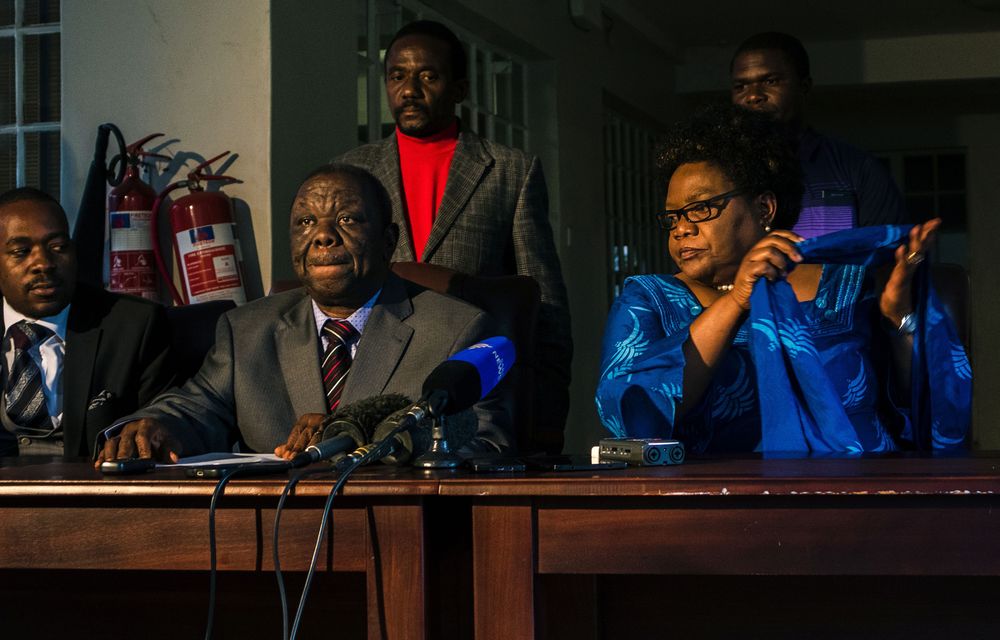
Morgan Tsvangirai and Joice Mujuru sign a Memorandum of Understanding to negotiate a coalition ahead of the 2018 general election in Harare on April 19 2017. Photographer: Jekesai Njikizana/AFP/Getty Images
Negotiations to unite Zimbabwe’s opposition against President Robert Mugabe’s ruling party before elections next year are foundering on disputes over who’ll be the alliance leader and guarantees of seats for smaller groups, according to five officials involved in the talks.
Former Vice President Joice Mujuru and ex-Prime Minister Morgan Tsvangirai are at loggerheads over who’ll lead the coalition, said the officials, who asked not to be identified because the talks haven’t been made public. Demands by a third opposition leader, Tendai Biti, for a guaranteed number of urban seats have been resisted by Tsvangirai, whose Movement for Democratic Change has strong support in the southern African nation’s cities.
The opposition divisions mirror discord in the ruling Zimbabwe African National Union-Patriotic Front, where supporters of Mugabe’s wife, Grace, and Deputy President Emmerson Mnangagwa are lobbying for their aspirant to succeed the president. While Mugabe, 93 and in power since 1980, is ZANU-PF’s candidate for the vote, he’s grown increasingly frail, sparking concern that he may not be able to see out another five-year term.
The intensifying political maneuvering comes at a time when Zimbabwe faces deepening unrest over widespread unemployment, the collapse of basic services and a severe cash crunch after abandoning its own currency in 2009 in favor of the dollar. The economy has halved in size since 2000.
Since 2005, the MDC has been dogged by splits. Lawyer Welshman Ncube quit that year to form his own party, known by the same same. Biti, expelled by Tsvangirai in 2014, set up the People’s Democratic Party.
Tsvangirai signed agreements with Ncube and Mujuru in April to begin negotiations for a united front. Biti, a former finance minister, later joined the talks after being approached by a Mujuru intermediary, one of the officials said.
Spokesmen for the parties said they couldn’t comment until the talks are concluded.

